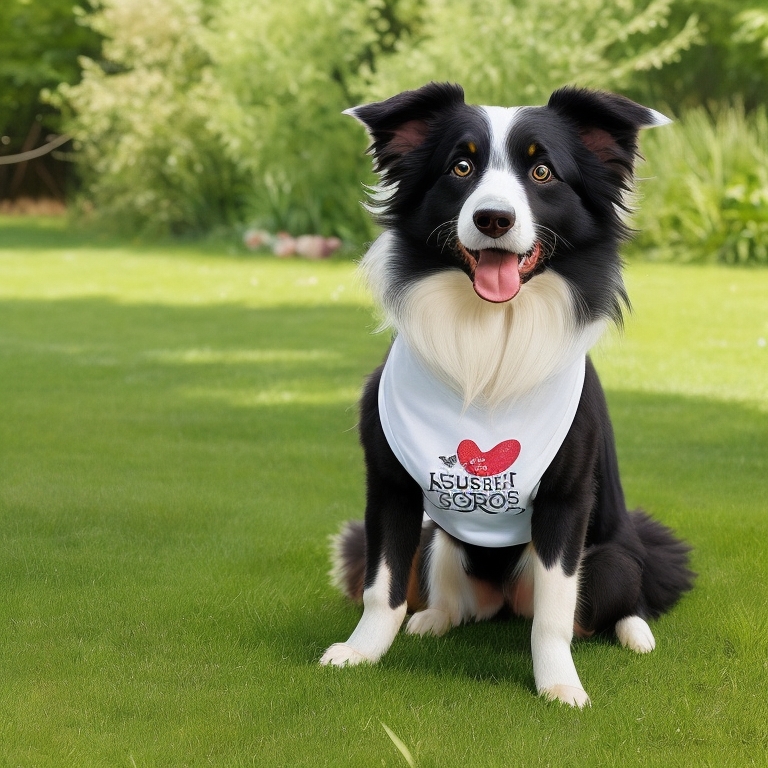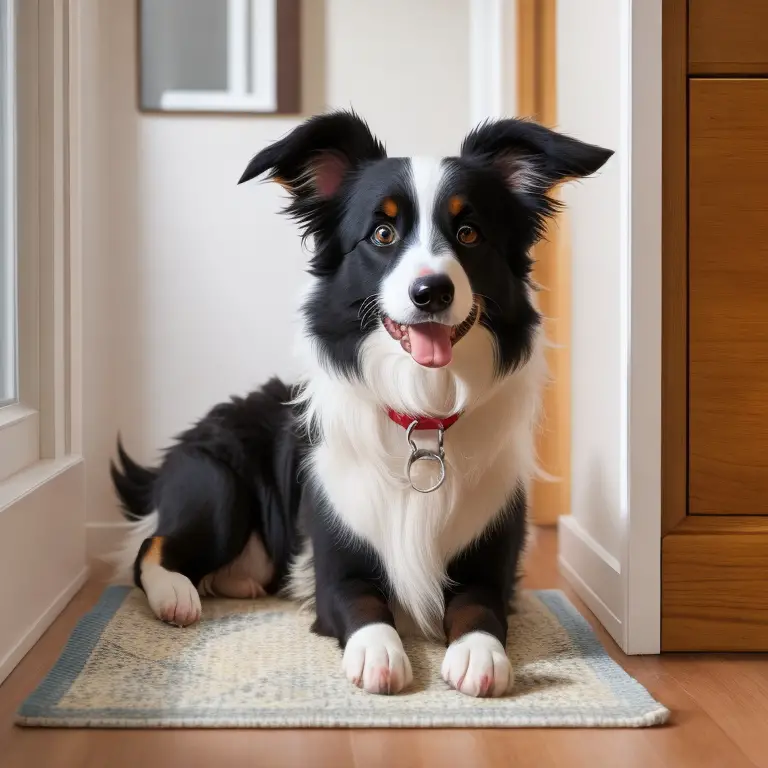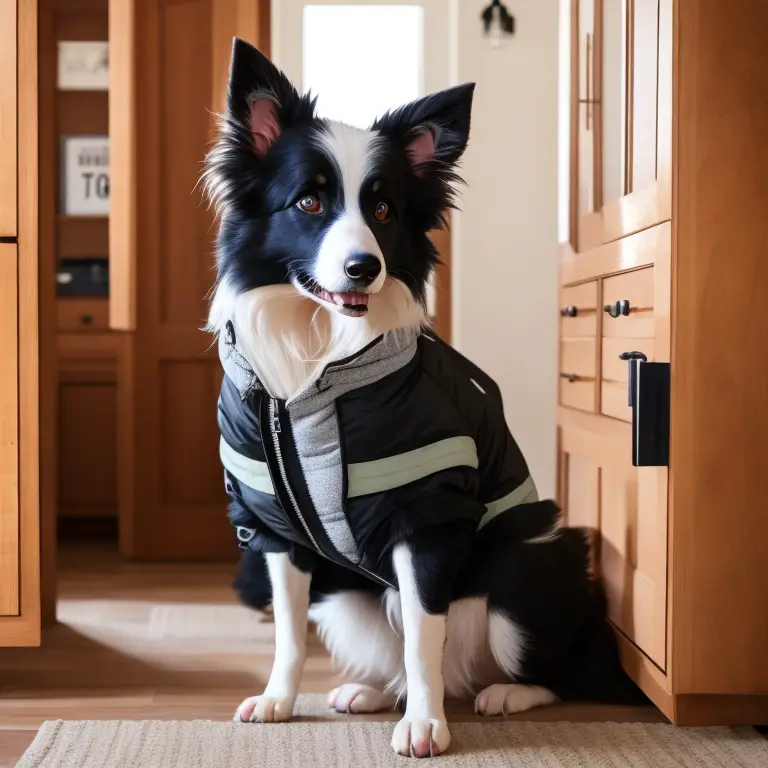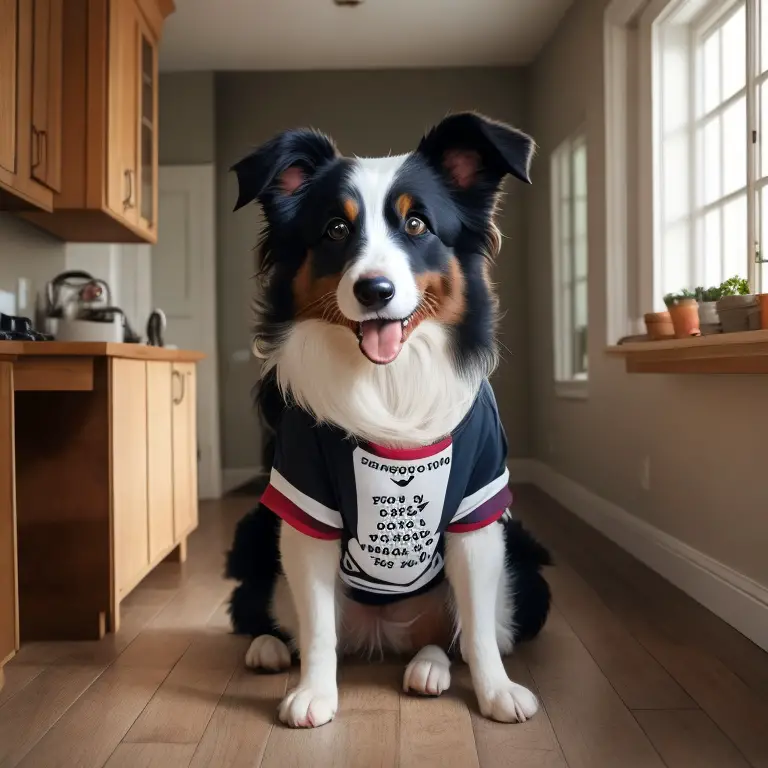Do Border Collies Get Along Well With Other Pets?
If you’re considering getting a Border Collie, you may be wondering whether they’re compatible with other pets in your household. With their friendly, sociable nature, Border Collies can make great companions for other pets, but like any breed, individual personalities can vary.
In this article, we’ll explore the factors that can affect a Border Collie’s relationships with other pets, as well as tips for ensuring a harmonious pet household.
Whether you have cats, dogs, or small animals, let’s take a closer look at how these herding dogs can coexist with their furry friends.
| Pet | Compatibility with Border Collies |
| Dogs | Usually gets along well with other dogs. Can be territorial and dominant with same-sex dogs. |
| Cats | May have a high prey drive towards cats and other small animals. Early socialization and training can help. |
| Rabbits and other small animals | Not recommended to keep together due to Border Collies’ instinct to chase and potentially harm these animals. |
| Birds | Not recommended to keep together due to Border Collies’ instinct to chase and potentially harm birds. |
| Farm animals (e.g. chickens, goats) | Can learn to coexist peacefully with proper training and supervision. However, their herding instinct may cause them to nip or chase livestock. |
Do Border Collies get along with other pets?
Border Collies and cats
Border Collies and cats can be friends if they are introduced to each other properly. However, it’s crucial to note that Border Collies have a strong herding instinct and may perceive cats as prey animals.
So, it’s essential to monitor the interactions between them.
Early socialization and obedience training can help reduce any potential conflicts between them. It’s a good idea to introduce Border Collies and cats in a controlled environment.
Keep the Border Collie on a leash and let the cat roam freely.
Praise the Border Collie and reward good behavior around the cat. Gradually increase the length of interactions as they get comfortable around each other.
Additionally, it’s crucial to provide each pet with their own safe space to retreat to if they feel uncomfortable.
This way, they can have some alone time should they need it. With proper supervision, socialization, and training, Border Collies and cats can coexist peacefully in the same household.
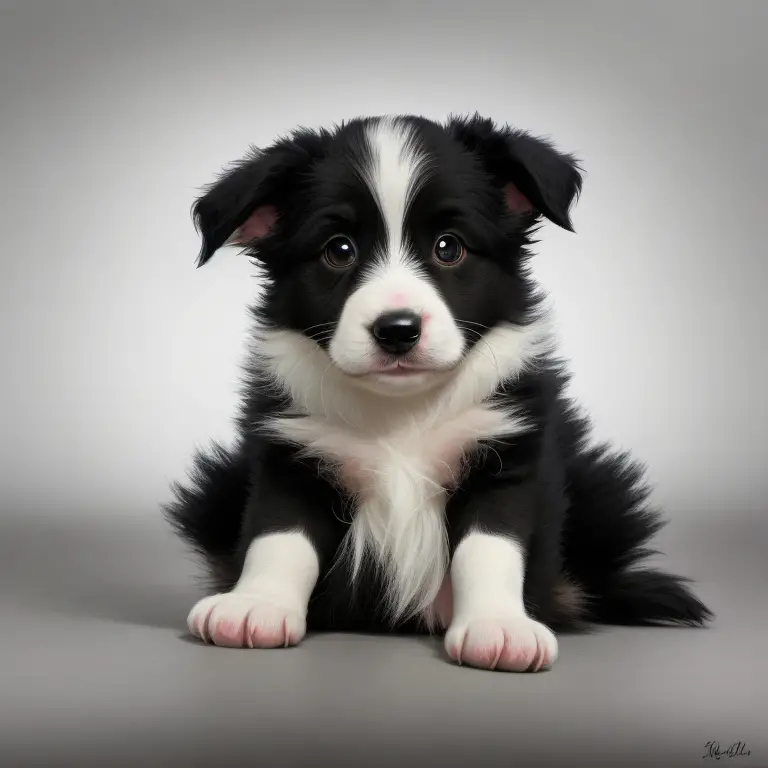
Border Collies and dogs
Border Collies generally get along well with other dogs, but it’s important to introduce them properly and ensure their interactions are supervised. Early socialization and training can also play a significant role in a Border Collie’s behavior towards other dogs.
It’s essential to pay attention to the temperament of both dogs before introductions.
Afterward, keep a close eye on them during the interaction, and if any signs of aggression or discomfort arise, separate them immediately. Successfully introducing a Border Collie to a new dog requires patience, care, and a willingness to remove oneself from the situation if necessary.
Border Collies and small animals
When it comes to small animals, Border Collies have a high prey drive due to their herding instincts. This makes it difficult for them to coexist peacefully with small pets such as rabbits, hamsters, and guinea pigs.
If not trained properly, Border Collies may see these smaller animals as prey and exhibit chasing behavior.
However, this doesn’t mean that Border Collies can never get along with small animals. Early socialization and training are crucial in ensuring that your Border Collie learns to coexist peacefully with small animals.
Providing separate spaces for each pet and supervising interactions can also help prevent any chasing or aggressive behavior.
If you already have small pets and are considering getting a Border Collie, it’s important to assess the individual temperament of your current pets and choose a Border Collie with a compatible personality. Alternatively, getting a Border Collie puppy and socializing them with your current pets from an early age can also increase the chances of a harmonious pet household.
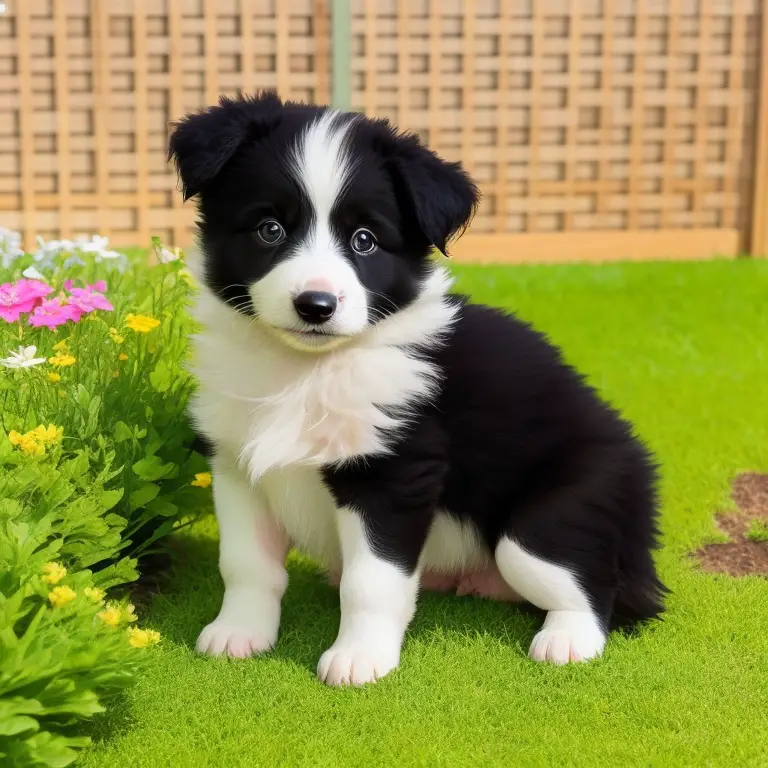
Factors that can affect Border Collies’ relationships with other pets
Early socialization
Early socialization is essential when it comes to how Border Collies interact with other pets. This stage is critical in ensuring they become well-adjusted and friendly dogs.
Early socialization involves exposing your Border Collie to various animals, situations, and people.
When Border Collies are exposed to other pets at an early age, they become more accepting and comfortable around them. This way, they can develop a positive relationship and bond with other pets in the household.
Early socialization also helps reduce the chances of aggressive behavior towards other pets, which can result from fear or stress.
It’s advisable to start socializing your Border Collie with other pets as early as possible. The ideal period for socialization is during the first four months of their life.
Expose them to various animals like cats, dogs, and small animals like rabbits, hamsters, and guinea pigs.
By socializing your Border Collie early, you can help them build the necessary social skills required to develop positive relationships with other pets. This way, you can create a harmonious household where your Border Collie and other pets can coexist peacefully.
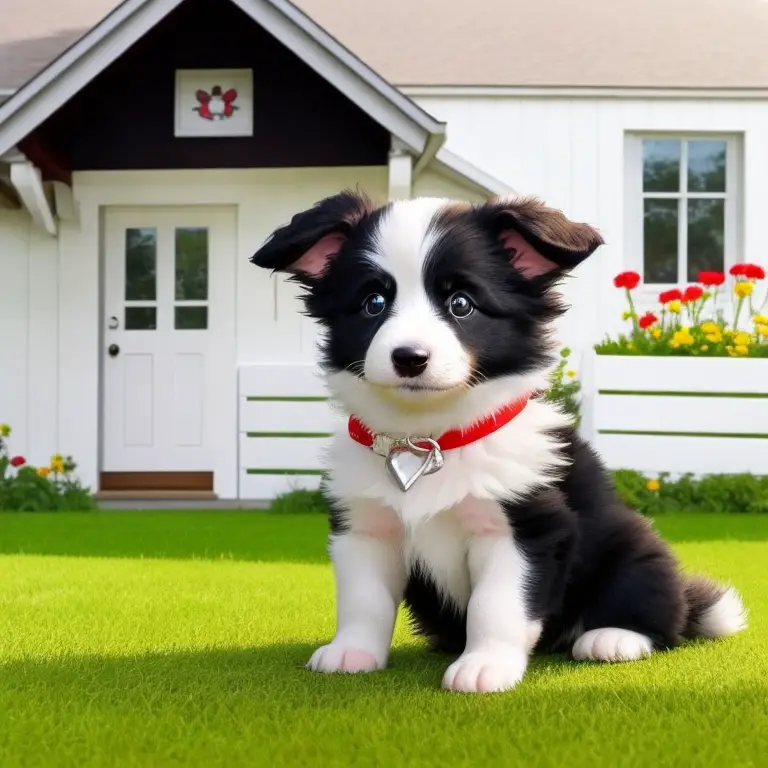
Training and obedience
Training and obedience play a crucial role in shaping Border Collies’ relationships with other pets. A well-trained and obedient Border Collie is more likely to get along with other pets, while an untrained and disobedient one may cause conflicts and disturbances.
It’s essential to train and socialize your Border Collie early on and expose them to different situations and pets.
This will help them learn to recognize and respect other pets’ boundaries and behave appropriately around them. Positive reinforcement techniques work well with Border Collies, as they are highly intelligent and respond well to praise and rewards.
Consistency is key when training Border Collies.
Make sure you establish clear rules and boundaries from the beginning and stick to them. This will help your Border Collie understand what is expected of them and avoid confusion or misunderstandings.
In addition to training, proper exercise and mental stimulation can also contribute to a Border Collie’s overall behavior and relationship with other pets.
Adequate exercise will help your Border Collie release pent-up energy and reduce the likelihood of destructive behavior or aggression towards other pets. Overall, Training and obedience are crucial factors to consider when it comes to Border Collies’ relationships with other pets.
With proper training and socialization, your Border Collie can coexist harmoniously with other pets in your household.
Temperament of the other pets
The temperament of other pets is a crucial factor that can affect a Border Collie’s relationship with them. Border Collies are generally friendly and sociable, but they may exhibit aggressive behavior towards other animals if they feel threatened or challenged.
Cats may not be the ideal companion for Border Collies if they have not been socialized together from an early age.
Border Collies have a strong prey drive, and as a result, they may chase and harass cats, which can lead to a hostile relationship between the two. Border Collies usually get along well with other dogs but may show dominance towards smaller dogs.
It’s important to supervise interactions between Border Collies and other dogs to ensure their safety.
Small animals such as rabbits, guinea pigs, or hamsters may not be the best fit for a Border Collie household. Border Collies’ strong herding instincts make them prone to chasing and even injuring small animals.
It’s essential to consider the temperament of other pets before getting a Border Collie to ensure harmony in the household.
Early socialization, training, and obedience also play a significant role in ensuring that Border Collies get along with other pets.

Tips for ensuring a harmonious pet household with a Border Collie
Supervise interactions
Supervising interactions is crucial when introducing a Border Collie to other pets in the household. Even if your Border Collie has a friendly disposition, it’s essential to monitor their behavior while interacting with other pets to prevent any accidents or misunderstandings.
Always keep a close watch when your Border Collie is around other pets, especially during the first few interactions.
If there are any signs of aggression or discomfort from any of the pets, separate them immediately. Intervene if you sense any tension between your Border Collie and other pets.
Use positive reinforcement techniques to encourage good behavior and discourage any undesirable behavior like chasing, nipping, or growling.
When supervising interactions, it’s also essential to create a positive, safe, and relaxed environment for all pets. Ensure that each pet has their own designated space, such as separate beds or play areas, to avoid territorial issues that can lead to conflicts.
Overall, by supervising interactions and encouraging positive behavior between your Border Collie and other pets, you can create a harmonious pet household where everyone can coexist peacefully.

Make sure each pet has their own space
It’s important to make sure that each pet has their own space to avoid potential conflicts over territory. This means providing separate sleeping areas, food and water bowls, and toys.
You don’t want your Border Collie or any of your other pets feeling like they have to compete for resources.
If you have multiple pets, it’s a good idea to keep them separated during feeding times to prevent any food-related aggression. You may also want to consider giving each pet their own designated play area to avoid any disputes over toys or who gets to play with a certain item.
Creating designated areas for each pet can also help with potty training.
If each pet has their own designated spot to do their business, it will be easier to monitor and clean up any messes. Overall, making sure each pet has their own dedicated space can go a long way towards ensuring a harmonious household with your Border Collie and other pets.

Train and socialize early
One of the most effective ways to ensure that your Border Collie gets along well with other pets is to train and socialize them early. This means exposing your Border Collie puppy to different people, animals, and environments at a young age.
Early socialization is crucial in shaping your Border Collie’s behavior and temperament.
It helps them to develop good social skills, including learning how to communicate with other dogs and pets. Socialization helps to prevent aggression, fear, and other negative behaviors that may develop if your Border Collie doesn’t have enough exposure to different people, animals, and environments.
Besides socialization, training and obedience are also essential in ensuring that your Border Collie gets along well with other pets.
Training teaches your Border Collie obedience and manners, ensuring that they understand what is expected of them. It also helps them to control their impulses and respond appropriately in different situations.
Overall, training and socialization play a vital role in ensuring that your Border Collie gets along well with other pets.
By providing them with the right exposure at an early age, you can help them to develop good social skills and prevent negative behaviors from developing.

Consider getting a Border Collie puppy if you already have pets
If you already have pets at home and are considering getting a Border Collie puppy, there are a few things to keep in mind. While Border Collies can get along with other pets, it’s important to introduce them properly and supervise their interactions.
If you’re thinking about adding a Border Collie to your pet household, here are some tips to ensure a harmonious environment:
- Consider getting a puppy: While adult Border Collies can adapt to life with other pets, getting a puppy will give them a better chance to learn and bond with their furry siblings from an early age.
- Supervise interactions: Ensure that you supervise all interactions between your Border Collie puppy and other pets, especially in the initial phase. Puppies can be too eager to play with other animals and may accidentally hurt them.
- Give each pet space: Make sure each pet has their own space and place to retreat and relax. This will help to reduce tension and avoid conflicts between pets.
- Train and socialize early: Early socialization and training are crucial for Border Collies. Socializing them with other pets from an early age will help them establish good relationships and prevent unwanted behaviors later on.
By following these tips, you can help ensure a harmonious pet household with your Border Collie and other furry friends.

Conclusion
Border Collies are known for their sociable nature and can get along well with other pets, including cats, dogs, and small animals. However, factors such as early socialization, training, and the temperament of other pets can affect their relationships.
To ensure a harmonious pet household with a Border Collie, it is important to supervise interactions, provide individual spaces and training, and consider getting a Border Collie puppy if you already have pets.
With these tips in mind, managing and understanding Border Collie’s relationships with other pets can lead to a happy and peaceful pet household.


